The History of the adidas Gazelle: Looking Back on One of the Brand's Most Iconic Sneakers
Originally published on Sneaker News (May 27, 2022)
adidas today is not just about sport. They maintain a chokehold over fashion, luxury and otherwise, with ongoing collections by Ye (formerly Kanye West) leading the charge. Designers the likes of Jeremy Scott, Rick Owens, and Raf Simons, too, have crossed paths with the German Sportswear brand; and recently, they’ve even added Prada, Balenciaga, and Gucci to their family. But unlike some longstanding sub-labels — such as adidas Yeezy as well as Yohji Yamamoto’s Y-3 — many of these luxury collaborations have opted to celebrate the Three Stripe’s existing catalog of icons.
Among these Originals, most of which have endured for multiple decades, the Gazelle is one of the newest to join the runway, doing so alongside Gucci back in May. And while the fashion house deserves some credit for bringing it back into the spotlight, the classic itself surely did most of the heavy lifting, as the partnership would be nothing without the shoe’s rich history, which dates all the way back to the mid-60s.
Introduced in 1966, the Gazelle quickly became one of adidas’ most important shoes, becoming an outright cultural icon years after its widespread use on handball courts and similar indoor arenas.
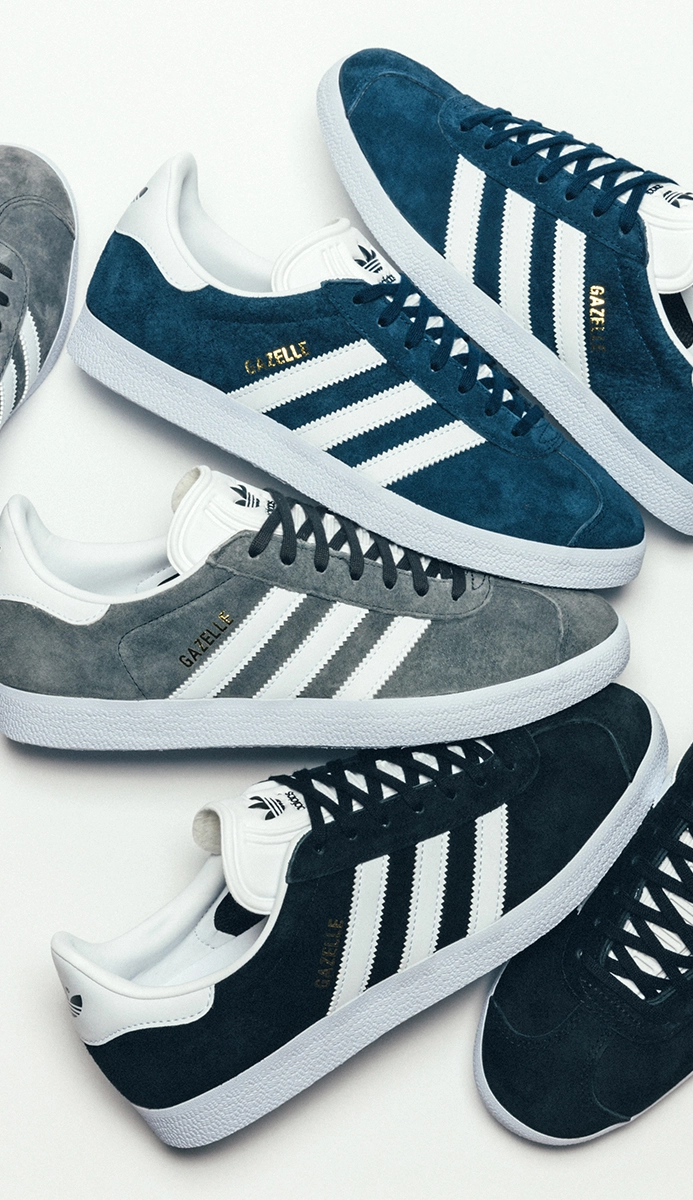
And though simple by today’s standards, the design was once among the brand’s most revolutionary creations, as it was one of the first pieces of performance footwear to be made of suede. At the time, most competitors opted for leather construction; suede offered similar levels of protection, all with the added benefit of a more supple, lightweight upper.
Originally, the Gazelle was offered in a red and blue colorway, both clad with white stripes. Alongside their disparate aesthetics, the pairs also featured unique toolings, which were tailored for two entirely different types of sport. Red denoted the use of a transparent, non-slip tread — ripped from the previously-released Olympiade — that was perfect for an outdoor setting. Blue, on the other hand, belonged indoors, opting for microcell technology and a ripple sole for a more cushioned landing and firmer footing, respectively.
The Gazelle was easily one of adidas’ most popular models by the 1970s, and the brand would go on to experiment with its design a number of ways. Alongside incorporating a brand new heel tab, the shoe was updated with a hexagonal-patterned microcell outsole, which appeared on subsequent Retros years later. Throughout the ’80s, the classic would continue to gain traction, particularly in the UK, where the silhouette would become one of the Three Stripes’ most desirable offerings.
Following a larger comeback in the early 1990s — which brought a wider array of colorways to the masses — the Gazelle would garner even more renown, becoming the cultural icon it’s known as today. Over the course of the decade, the shoe would be worn by everyone from the British youth to celebrities the likes of Kate Moss, all of whom helped establish it as an important part of the ’90s.
In 2016, hot on the heels of the Stan Smith’s return two years prior, the Three Stripes would look back on the Gazelle once again, reissuing the shoe in its 1991 spec. This iteration was selected for its impact on the decade, as the silhouette’s popularity spiked thanks in part to the influx of new, more readily available colorways. And to make sure the Retro was as true to the original as possible, the team had to start from the ground up, remaking all the blueprints and technical drawings.
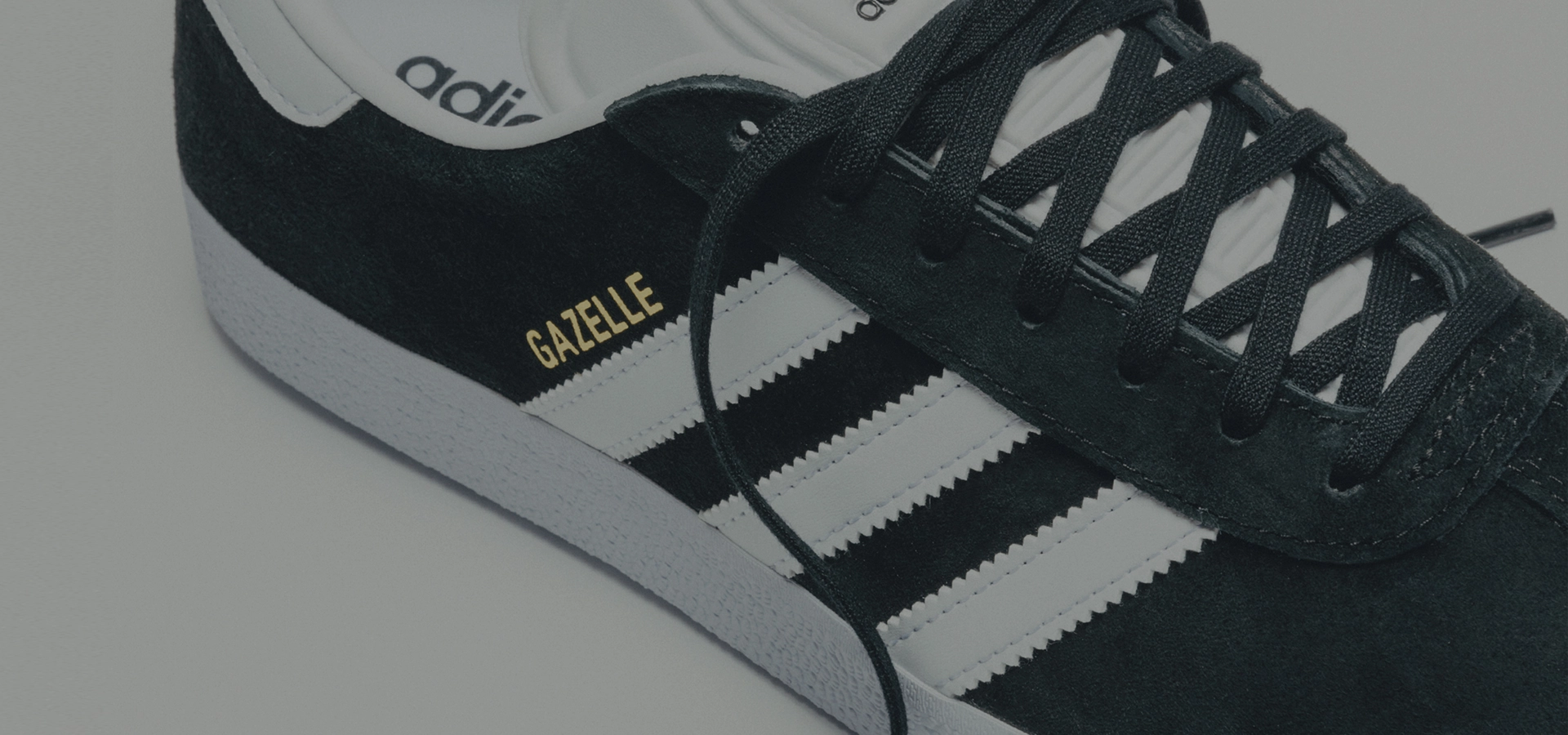
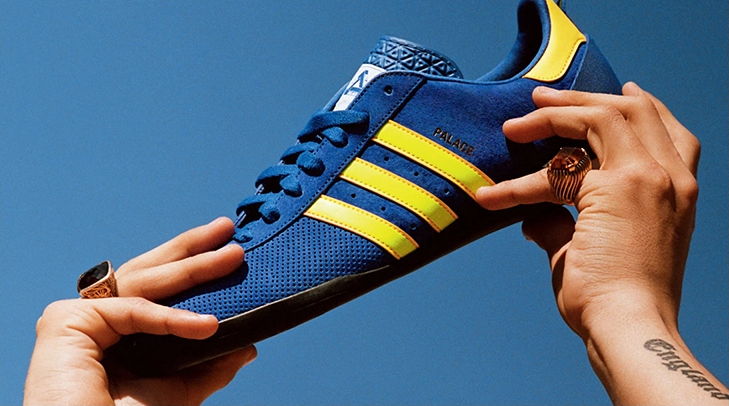
adidas x Palace Indoor
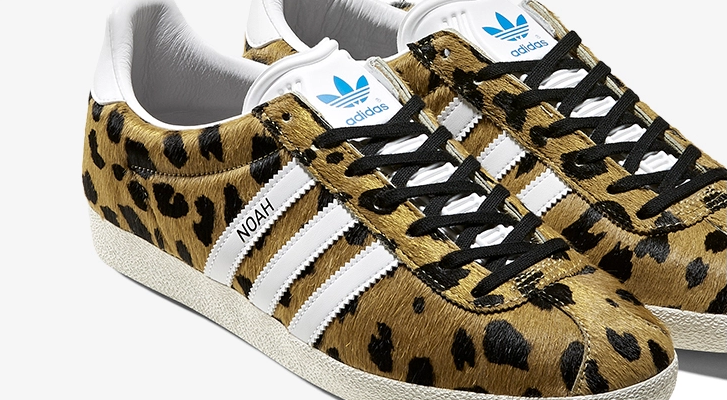
adidas x NOAH Gazelle Cheetah
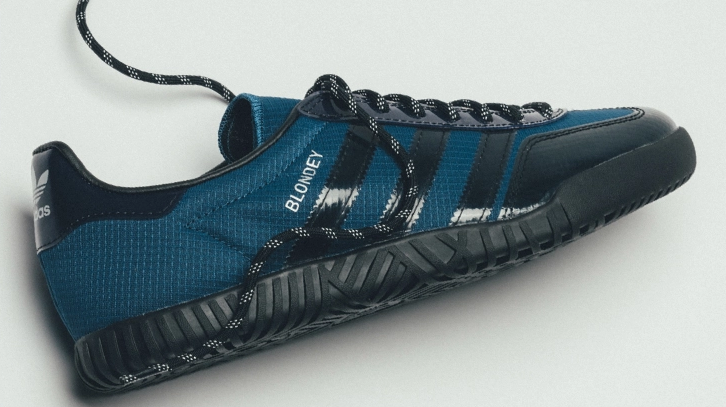
adidas A.B. Gazelle Indoor Blondey McCoy Mineral Blue
At this point, a number of boutiques, streetwear labels, and the like have made their mark on the classic, at times doing away with its lauded simplicity. And in one of the earliest, most notable partnerships, Neighborhood and adidas would dress up the sneaker right in time for the 2006 World Cup. Fast forward to 2015, and now Palace would borrow the Gazelle’s DNA, bending it to create the Palace Pro and then the Palace Indoor further into the catalog. Additional collaborators would enter the fold in the following years, including but not limited to Wings And Horns, Sneaker Politics, Juice Store, and even Transport for London, the government body responsible for the city’s transport network.
More recently, 2020 would see NOAH become one of the Gazelle’s most vocal endorsers. With his penchant for camo and animal prints fully on display, founder Brendon Babenzien stated that “the silhouette is appealing to so many groups because of its simplicity. The Gazelles allow people to wear them in any number of ways and they take on the personality of the wearer. They are limitless.” Proving this point, soccer club LA Galaxy, publishing company Paradigm, and Blondey McCoy would also receive their own joint efforts, some of which few could have anticipated. But even fewer would be able to predict what would come next: a runway debut alongside Gucci.
Shining the Gazelle through an entirely new, luxurious lens, Gucci presented a drove of collaborative colorways during Fashion Week back in February. Monogram prints and bold, lively hues rendered the silhouette completely in the fashion house’s vision, all without compromising its time-honored design. And though few can justify, let alone afford the $850 price tag, this team-up is a further testament to the shoe’s importance.
In the decades to come, the Gazelle will likely continue to be just as influential, if not more so. And we at Sneaker News are eagerly awaiting everything it has in store, both in the way of collaborations and General Releases.
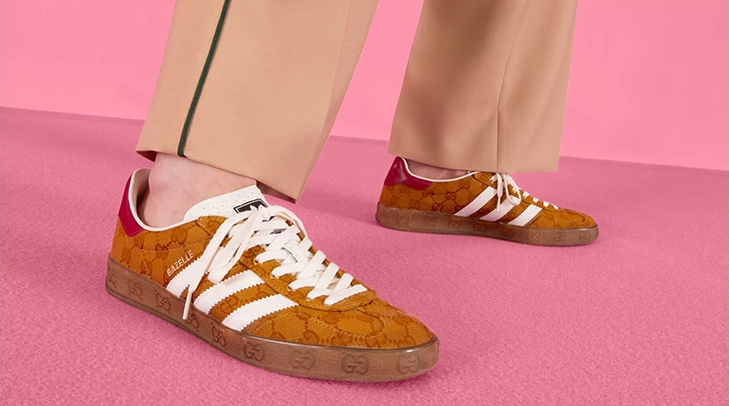
adidas x Gucci